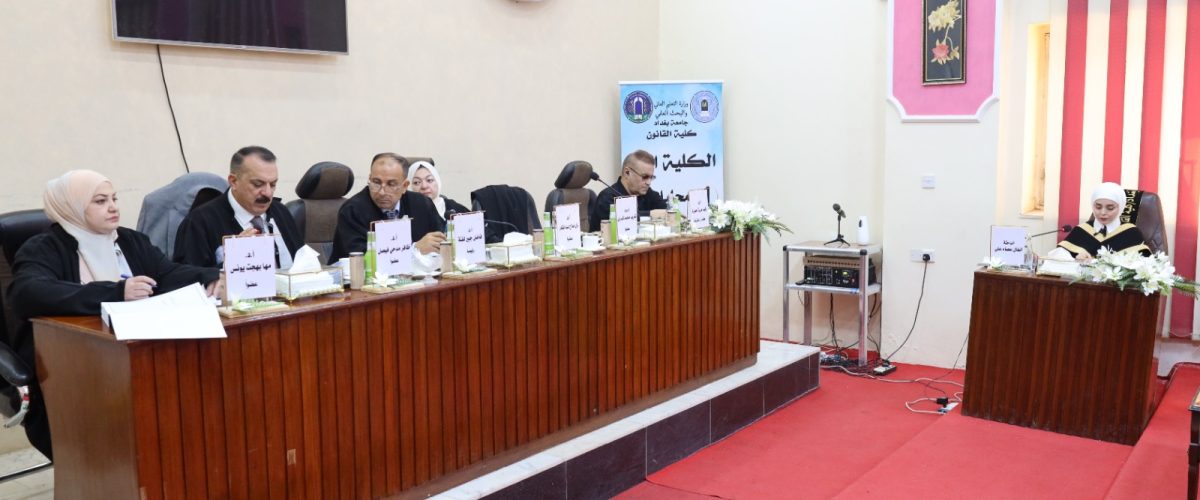The College of Law at the University of Baghdad Discusses a Doctoral Dissertation on Legislative Vacuum and Means of Filling It in Administrative Law – A Comparative Study
The College of Law at the University of Baghdad held a discussion for a doctoral dissertation entitled:
“The Area of Legislative Vacuum and the Means of Filling It in Administrative Law – A Comparative Study,”
submitted by Anfal Issam Ali in the Department of Public Law,
on Monday, September 8, 2025, in the College Conference Hall.
The examination committee was composed of the following esteemed professors:
-
Prof. Dr. Fadel Jabir Lafta – Chairman
-
Prof. Dr. Dhafer Madhhi Faisal – Member
-
Prof. Dr. Maha Bahjat Younis – Member
-
Prof. Dr. Ban Salah Abdul Qader – Member
-
Asst. Prof. Dr. Taghreed Mohammed Qaddouri – Member
-
Prof. Dr. Waleed Mirza Hamza – Member and Supervisor
-
About the Dissertation
The study aimed to identify the precise concept of the legislative vacuum in administrative law, delineate its forms and characteristics, and analyze the reasons behind its existence. It also sought to clarify the unique nature of legislative vacuums in the administrative field, their implications on public administration and the judiciary, and their impact on the protection of individual rights and freedoms.
Furthermore, the dissertation analyzed the possible legal mechanisms to fill such vacuums and proposed solutions aligned with the constitutional and legal framework of Iraq. Structure of the Dissertation
The dissertation was divided into two main chapters:
-
Chapter One: Addressed the causes of legislative vacuums in administrative law.
-
Chapter Two: Focused on the means of filling these vacuums within the framework of administrative law. Key Recommendations
The dissertation concluded with several recommendations, the most significant of which are:
-
Amending the constitutional powers granted to the Council of Ministers, specifically Article (80/Third) of the 2005 Iraqi Constitution, to explicitly authorize the Council to issue regulations and instructions governing the operation of public utilities and administrative policing.
-
Introducing a clear constitutional provision in the 2005 Constitution that permits delegation of certain legislative powers to the executive administration for the purpose of addressing legislative vacuums and their consequences. This includes granting the legislature the authority to delegate power to a minister or to the Council of Ministers to issue regulations or instructions on specific matters, provided that the delegation is clearly limited in subject matter, purpose, and legal scope.
-
Proposing a defined hierarchy of sources of administrative law that administrative judges can refer to when faced with a legislative vacuum. This hierarchy should reflect the nature and specificity of the administrative dispute in question and should be explicitly included in the amended text of the State Council Law No. 65 of 1979, in a way that parallels the structure found in Article 2(1) of the amended Iraqi Civil Code No. 40 of 1951.



